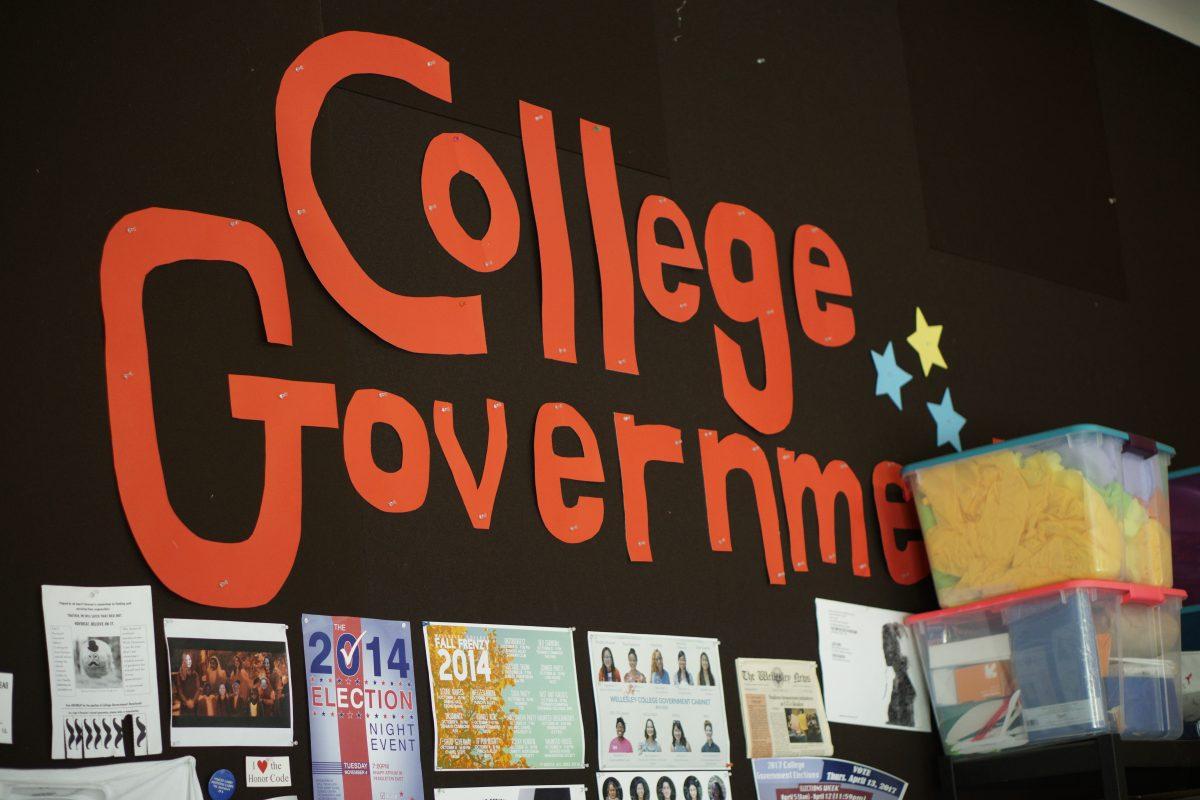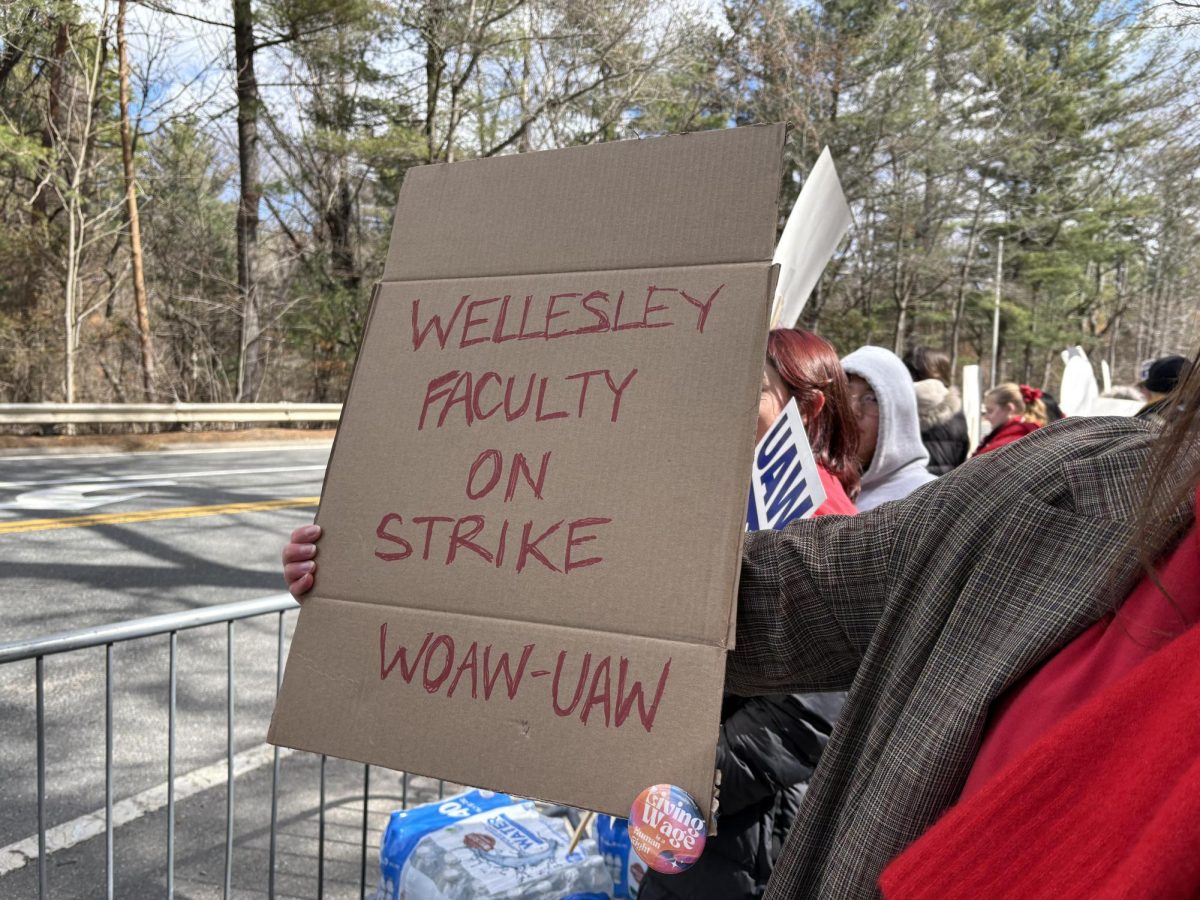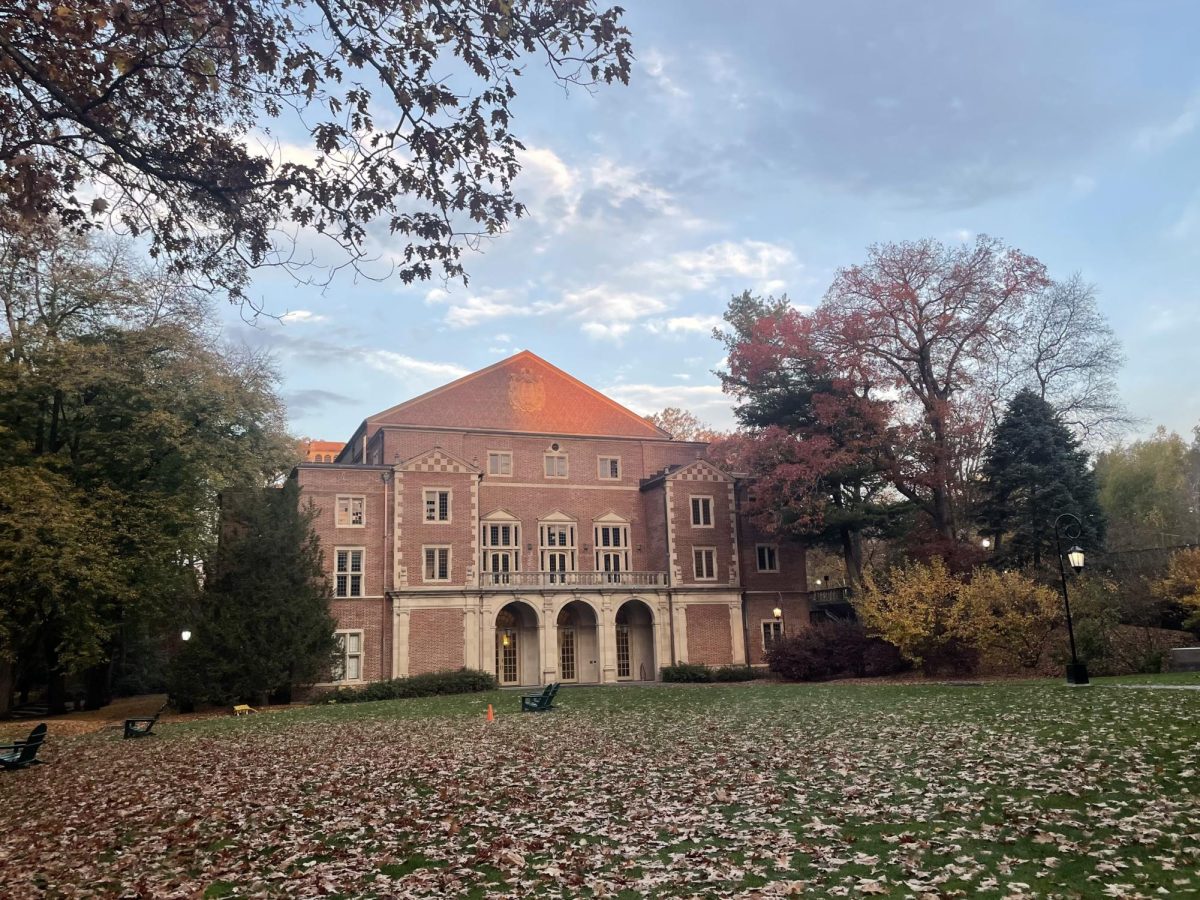College Government elections for the 2024-2025 year took place on Tuesday, March 5, with contested elections for President, Vice President, and Secretary-Treasurer, write-in candidate Mia Cadena ’25 winning the presidential election and the Chief Justice position left open at the end of voting.
Current CG President Ingrid Bell ’24 noted that this election felt different, in a way they said reflected changes to CG in recent years during the return to in-person events after the pandemic.
“As we’ve sort of shifted all the way back to fully in-person Senate [and] in-person election events, I think we’ve seen total attendance numbers go down, but I’ve seen more in-depth questions be asked, so it’s that shift from virtual to in person that’s been really noticeable,” they said.
The Chief Justice position was unfilled, which Bell said is quite common — although it is relatively rare to have a position stay open all year, having to run a special election for one position is a fairly common practice. Since the position is only open to students with experience on the Honor Code Council, Bell reported that CG reached out to the Honor Code Council to request students write SOIs and that Wellesley will see students campaigning for the position after spring break in preparation for a special election.
Bell also said that the presence of write-in candidates is not shocking, but that write-in candidates typically run in cases where no one is running for a position at the outset of election week; this year, that was the case for Orgs Chair. Those candidates often win their elections, but if they do not, it is usually a result of not enough students being aware of their running.
“Last year, the gendered language ballot caused a real uptick in voter participation which was great, but most people who were really educated about the ballot question weren’t as educated about the candidates,” Bell said. “We had some write-in candidates lose their races, not because people were opposed to them having that job, but because people didn’t know they were running and didn’t know what name to write in.”
In the case of the 2024 presidential election, a write-in candidate ran against a ballot candidate, which Bell recalled having happened the year before they came to Wellesley, when a contentious election for Student Bursar resulted in so many abstentions that it went to a special election.
“The phenomenon of having a write-in candidate run against a ballot candidate is less common, though not entirely unheard of,” Bell said.
Bell reflected on their general outlook on this year’s election:
“In some ways, [the election was] more contentious than we’re used to seeing, particularly the presidential election. I was glad to see more contested elections — I think it’s a good sign when multiple people run for a position because it means folks want to get engaged,” they said.
They also remarked that the increase in participation leads to truer democratic representation at Wellesley.
“It means we have a true democracy, where students actually have a choice of who’s going to represent them, which I think is a good thing,” they said. “A little bit of controversy isn’t necessarily bad; it allows us to talk about the issues we care about.”
Mia Cadena ’25, this year’s CG presidential election winner, said that the necessity for student engagement was a driving factor in their decision to run.
“There were a lot of people upset about the election being uncontested — and absolutely, our elections shouldn’t be like, ‘Oh this is the only person on the ballot, that’s your only option,’” Cadena said. “There was a campus-wide desire and call for another person to serve, and I was like, ‘Why not me?’”
As a write-in candidate, Cadena talked about how important her support system was during her campaign. Cadena decided to do a chalk-and-talk outside Lulu and host CGP Chats in the Tower, Stone Davis and Lulu dining halls for any students who wanted to talk to her about her candidacy. Cadena also said she drew on support from her friends to make spam.
“When we released the “WANTED” spam, [we thought,] ‘Let’s have fun, the campaign can still be fun,’ so [we put] a little western theme — I’m from El Paso, Texas, so that became part of the persona that we wanted to push for the campaign. It was like, I’m not just this candidate running for CGP — I’m one of y’all. It was super corny, but that was also what I was intending from the start,” she said.
Cadena said that much of her campaigning was focused on her as a person:
“Given that I was a write-in, I didn’t want to submit an SOI that was like, ‘Here are my three points’ … It was more like, I have all these ideas but it’s something that I want to talk about more. It was more like, this is who I am as a person”
Current president Bell observed that the election cycle as a whole was not always so good-spirited, a tone especially marked on social media. While the return to increased engagement in CG affairs resulted in more in-person election events like those Cadena hosted, it also coincided with the rise of anonymous social media platform Sidechat this year.
“The way that Wellesley students’ use of social media has changed has affected elections a lot in particular … This year I feel like Sidechat has taken off in a way that’s really different — that ability to anonymously comment on things makes the meanest voices really loud,” Bell said. “I think most students care about each other and treat each other well in the real world, in person, but you see this online shift towards real rudeness that I think is actually perpetrated by a very small number of students but gets an outsized amount of attention. The majority of students I dealt with in person during elections week were remarkably kind, compassionate [and] understanding of the fact that all of the candidates are human people.”
In the future, Bell is hoping for a campus climate in which students can participate without being dissuaded by the negativity exacerbated on social media.
“Criticizing candidates’ beliefs is obviously valid. These people put themselves forward – I’ve done it. When you run for something, you know you’re inviting the student body to criticize you, to ask you tough questions, but I think it’s a shame to see the kind of vitriol towards a person who, at the end of the day, is just a fellow Wellesley student that starts to develop on the anonymous internet,” they said. “I hope we can thread the needle to where more folks will feel engaged, folks will want to run without creating a situation where running for CG in any regard means opening yourself up to people being just horrible.”
Bell noted that CG elections at Wellesley have historically been occasionally negative.
“I know before I started here, maybe a decade ago, there was a real trend of CG elections being awful — candidates being super negative, vandalizing each other’s spam, the debates being just ad hominem attacks on each other, it apparently was really terrible,” they said.
In response, Bell said, Wellesley community members worked to tone down the negativity surrounding CG elections, implementing rules prohibiting candidates from saying anything about each other, positive or negative, to scale back the intensity of competition.
However, Bell acknowledged that it has been a contentious year, both in the world and on campus, and that complicated elections are often a natural result.
“Obviously the conflict in Israel and Palestine was a factor in how contentious this election was and has been a factor in what’s going on on campus this year, and so what happens here is a mirroring of what’s going on in the broader world,” they said. “I think you’re going to see more conflict between candidates, more conflict around CG elections when there are issues that people feel are really fundamental to who they are, fundamental to their safety, their well-being, than when the issues are less personal to folks.”
With elections now complete, with the exception of Chief Justice, Cadena is looking to her future as CG president. Cadena discussed in her SOI her goals to protect student-led spaces and decentralize CG. Her first goal is informed by her own experience in Instead, the residential feminist co-op on campus. Cadena discussed the administration’s recent decision to move Instead out of a house on East Side and onto one floor with members of SCoop. While she acknowledged that the administration’s decision was complicated, Cadena also noted that Instead and SCoop have different goals, and that the decision prompted her to evaluate the larger lack of support for co-ops on campus.
“Being in a co-op has been so important to me, and seeing that lack of support is something you feel every day,” she said. “I’m going to be in spaces with admin where I can at the very least advocate for these spaces.”
Beyond advocating for SCoop and Instead, Cadena highlighted Hoop and El Table as student spaces that need more support.
“It’s not just the residential co-ops, it’s also our business co-ops. They’re the cornerstone of what makes Wellesley … [If] I’m stressed out, I’m going to go listen to some cool tunes in El and get a sandwich. After we got the news about the election results, we were like ‘Let’s go to Hoop!’ … I think that’s the perfect way to put how important it is to support these spaces — they really are there for you in all kinds of times,” she said.
As for decentralizing CG, Cadena says she’s hopeful about the possibility of employing a decentralized conception of CG in her leadership.
“It also connects back to the co-ops and my time spent at Instead because we practice a nonhierarchical, decentralized form of leadership where no one person’s above another … even though at its core, CG is hierarchical, I was hoping to maybe extract that a bit … To me, that’s going to be more of a dialogue with them this upcoming year.”
Despite the contentious nature of this year’s election cycle, Bell stressed how important it is to care about CG and its elections, whether or not they are exciting, since their decisions directly affect students, and participating in elections is necessary for maintaining them.
“Some of what we do that is boring bureaucracy is the stuff that makes sure orgs get funding, makes sure that orgs get recognized, [and] loans money to Hoop and El Table,” they said. “It’s really incredible that we have such far-reaching self-governance; that’s not true at every school … students being engaged is what protects our ability to govern ourselves, which I think is really important, particularly at a school where we’re so insulated — we’re such a small community, everything about our lives happens here.”




